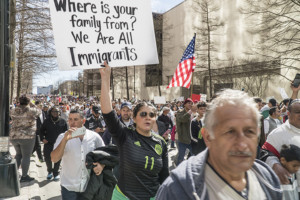 Before 2009, pending petitions couldn’t be approved if the petitioner died before review, but provision INA 204(l) made it possible to approve petitions even if the sponsor died. However, there are conditions that petitions and applicants must meet to have petitions approved in the event of the sponsor’s death.
Before 2009, pending petitions couldn’t be approved if the petitioner died before review, but provision INA 204(l) made it possible to approve petitions even if the sponsor died. However, there are conditions that petitions and applicants must meet to have petitions approved in the event of the sponsor’s death.
Conditions for Approving Petitions if a Sponsor Dies
Officers may be able to approve adjustment applications, petitions, and other applications if the applicant resided in the U.S. when his or her sponsor died and if the applicant continues to live in the U.S. on the date of the decision on the pending application. Additionally, the applicant must be a beneficiary of an approved or pending immediate relative immigrant visa petition, a beneficiary of an approved or pending family-based immigrant visa petition, a derivative beneficiary of an approved or pending work visa petition, or a beneficiary of an approved or pending refugee/asylee relative petition. The applicant may also be a person admitted as a derivative U or T nonimmigrant or a derivative asylee.
Meeting the Requirements of a Qualifying Relative
The deceased sponsor involved in a pending petition or application needs to meet the definition of a qualifying relative before officers can consider noncitizens eligible for immigration benefits through that sponsor. To help gauge whether the sponsor is a qualifying relative when immigrating as a family, Congress provided a list of people who may continue to seek citizenship via the relative.
According to the U.S. Citizenship and Immigration Services (USCIS), the qualifying relative is:
- A petitioner of an immediate relative immigrant visa petition or beneficiary of a family-sponsored immigrant visa petition
- The primary beneficiary of either a widow(er)’s self-petition or an employment-based immigrant visa petition
- A petitioner of a refugee/asylee relative petition
- A VAWA self-petitioner
- The primary recipient of a T nonimmigrant visa
- The primary asylee approved for asylum
If the deceased sponsor was part of the applicant’s immediate family, couple, or same-sex couple, he or she will be considered a qualifying relative.
Meeting the Residency Requirement
Applicants must also have lived in the U.S. at the time their sponsor died, and they must continue to reside in the country to adjust immigrant status through the deceased sponsor.
According to INA 204(l), an applicant’s residence is their “principal, actual dwelling place in fact, without regard to intent.” This means that if the applicant’s place of residence is within the U.S., they will meet the residency requirement.
If an applicant traveled abroad at the time of the qualifying relative’s death, the applicant won’t need to prove that he or she still resides in the U.S. He or she also won’t need to prove that his or her presence in the country is lawful. On the other hand, a removal order and its execution will prevent noncitizens from residing in the U.S.
Generally, noncitizens seeking citizenship in the U.S. will be able to successfully apply for a visa even if their sponsor dies. Under certain conditions, they may also be able to file a wrongful death lawsuit if the sponsor died as a result of negligence. As long as sponsors meet qualifying relative requirements and applicants meet residency requirements, they will have the chance to adjust their status.
